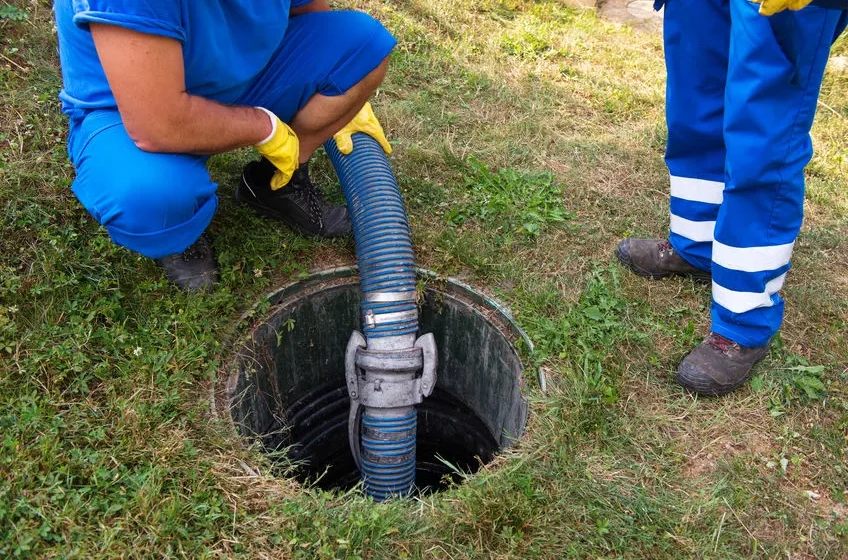Maintaining a septic system is a responsibility that comes with homeownership, particularly in areas without access to municipal sewage services. Regular septic tank pumping is a fundamental aspect of this maintenance. Unfortunately, some homeowners may underestimate the importance of this task and choose to skip or delay it in an attempt to save time or money. In this cautionary tale, we will explore the consequences of skipping septic tank pumping and highlight the potential pitfalls that can result from neglecting this essential maintenance.
The Importance of Regular Septic Tank Pumping
Before delving into the cautionary tale, it’s crucial to understand why regular septic tank pumping is vital for the proper functioning of your septic system:
- Waste Accumulation: Septic tanks are designed to separate solids from wastewater. Over time, solid materials, known as sludge, accumulate at the bottom of the tank. Skipping pumping allows sludge to build up, reducing the tank’s capacity and leading to potential clogs and backups.
- System Efficiency: An overfull septic tank can affect the efficiency of the entire system. When the tank becomes overwhelmed with solid waste, it can’t effectively separate and treat wastewater, resulting in poor treatment and potential contamination of the drainfield.
- Preventative Maintenance: Regular septic tank pumping is a form of preventative maintenance. It helps identify and address issues before they become costly problems, such as drainfield failure or septic system backup.
- Environmental Protection: Neglecting septic tank pumping can lead to untreated sewage overflowing into the environment, contaminating groundwater, surface water, and soil. This pollution can have detrimental effects on ecosystems and public health.
The Cautionary Tale
Once upon a time in a quiet suburban neighborhood, there lived a family in a cozy home nestled among the trees. This family, like many others, relied on a septic system to manage their wastewater. At first, they diligently maintained their septic system, scheduling regular inspections and pump-outs every few years as recommended.
However, as time went by, the family began to underestimate the importance of septic tank pumping. They saw it as an inconvenience and an unnecessary expense. The years passed, and they continued to use their septic system without any thought of pumping it.
At first, everything seemed fine. The toilets flushed, the sinks drained, and life carried on as usual. Little did they know that beneath their lawn, their septic tank was silently filling with sludge and solid waste. Slowly but surely, the tank’s capacity diminished, and trouble began to brew.
Signs of Neglect
As the family continued to neglect their septic tank, signs of trouble began to emerge. First, they noticed slow drains and gurgling sounds coming from the plumbing fixtures. They dismissed these signs as minor inconveniences, never realizing that they were the early warnings of a looming disaster.
Next came the foul odors that permeated their yard. The smell of sewage became so overpowering that it made spending time outdoors unbearable. Yet, they chose to mask the odor with air fresheners and avoid their yard altogether.
The Breaking Point
One fateful day, disaster struck. The family woke up to find that their toilets wouldn’t flush, and sewage had started to back up into their home. Panic set in as they called for emergency plumbing assistance. The plumber arrived and immediately identified the problem—a severely overloaded septic tank.
The consequences of their neglect were clear:
- Costly Repairs: The family faced a hefty bill for emergency plumbing repairs and septic tank pumping. The tank had to be pumped multiple times to remove the excessive sludge and waste.
- Yard Damage: Their once-pristine yard was now a mess. The heavy equipment used for pumping and repairs left deep trenches and damage in its wake.
- Health Concerns: The sewage backup posed health risks to the family due to exposure to harmful pathogens and contaminants. They needed to thoroughly clean and disinfect their home to ensure their safety.
- Environmental Impact: Untreated sewage had already seeped into the ground, potentially contaminating the groundwater and causing harm to the local ecosystem.
- Inconvenience: Dealing with the emergency plumbing issues and repairs disrupted their daily lives and routines.
The Lesson Learned
As the family faced the consequences of their neglect, they realized the importance of regular septic tank pumping and maintenance. They vowed never to skip this essential task again and shared their cautionary tale with friends and neighbors.
Conclusion
The cautionary tale of the family who skipped septic tank pumping serves as a stark reminder of the potential consequences of neglecting this vital maintenance task. Regular septic tank pumping is not merely an inconvenience or an unnecessary expense; it is an investment in the proper functioning of your septic system and the protection of your home, health, and the environment.
Don’t wait for warning signs like slow drains or foul odors to emerge. Schedule septic tank pumping according to the recommendations based on factors such as tank size, household size, and water usage. By doing so, you can prevent costly emergencies, protect your property, and ensure the longevity of your septic system. Remember, the true cost of skipping septic tank pumping far outweighs the expense of regular maintenance and peace of mind it provides.



